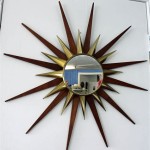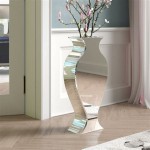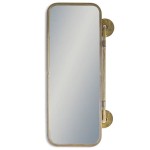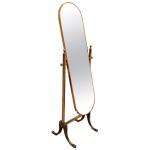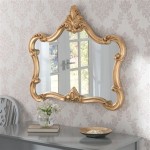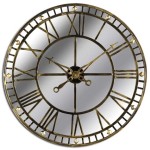Mirror Paint for Acrylic Plastic: Essential Aspects
Mirror paint is a unique and versatile coating that can transform acrylic plastic into a highly reflective surface, similar to a mirror. This allows for the creation of captivating visual effects and a wide range of applications. In this comprehensive guide, we delve into the essential aspects of mirror paint for acrylic plastic, including its properties, applications, and application techniques.
Properties of Mirror Paint
Mirror paint is typically composed of a mixture of reflective pigments, binders, and solvents. The reflective pigments are usually made of aluminum or silver particles, which provide the paint's mirror-like finish. The binders hold the pigments together and ensure the paint adheres to the plastic surface. Solvents are used to thin the paint and make it easier to apply.
Mirror paint has several notable properties that make it suitable for use on acrylic plastic. It dries quickly, creating a durable and scratch-resistant finish. The paint is also highly reflective, providing a mirror-like surface that can reflect light and images.
Applications of Mirror Paint
The applications of mirror paint for acrylic plastic are diverse and versatile. It is commonly used in the following areas:
- Interior Design: Mirror paint can be used to create unique and eye-catching wall accents, furniture, and decorative items.
- Automotive: It can be applied to plastic surfaces of vehicles, such as headlights and taillights, to enhance visibility and create custom effects.
- Displays and Signs: Mirror paint can be used to create reflective displays for advertising, branding, and signage.
- Art and Crafts: It is popular among artists and crafters for creating reflective sculptures, jewelry, and other decorative objects.
Application Techniques
Proper application techniques are crucial to achieve a mirror-like finish with mirror paint. Here are the key steps involved:
- Surface Preparation: Clean the acrylic plastic surface thoroughly to remove any dirt, grease, or debris that could affect the paint's adhesion.
- Priming: Apply a primer specifically designed for use with mirror paint to ensure a strong bond between the paint and the plastic.
- Thinning: Thin the mirror paint according to the manufacturer's instructions to achieve the desired consistency for efficient application.
- Application: Use a soft brush or spray gun to apply thin, even layers of mirror paint. Allow each layer to dry before applying the next.
- Curing: After the final coat of paint is applied, allow it to cure completely as per the manufacturer's recommendations. This will develop the paint's full reflectivity.
Conclusion
Mirror paint for acrylic plastic is a captivating and versatile coating that opens up a world of possibilities for designers, artists, and hobbyists alike. By understanding its properties, applications, and application techniques, you can unlock the potential of this unique material and create stunning reflective surfaces that add depth and dimension to any project.

Specialty Mirror Effect Page

Paint Acrylic Mirror Sheet One Way Plastic Board China Made In Com

1220 X 2440 2 0 Mm 4 8 Silver One Way Pmma Material Acrylic Mirror Sheet With Painting Backside China Made In Com

Paint Acrylic Mirror Sheet One Way Plastic Board China Made In Com

Environmental Protection Paint Acrylic Mirror Sheet China Cast Made In Com

Acrylic Mirror Sheet Gold And Silver Back Paint Self Adhesive China Sheets Made In Com

How To Spray Paint A Mirror Step By Guide

2 X Chrome Effect Silver Spray Paint Mirror Finish Car Metal Cardboard Plastic

Painted Mirror Harvest Virtue Create

How To Paint A Mirror Frame Gold Easily In Two Steps
